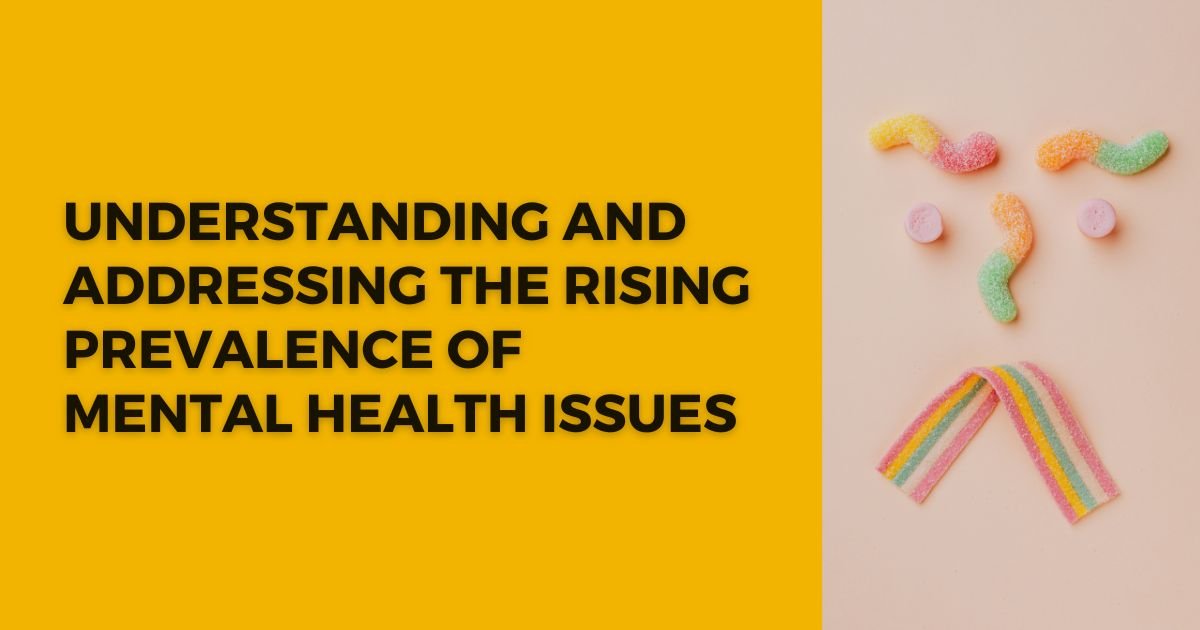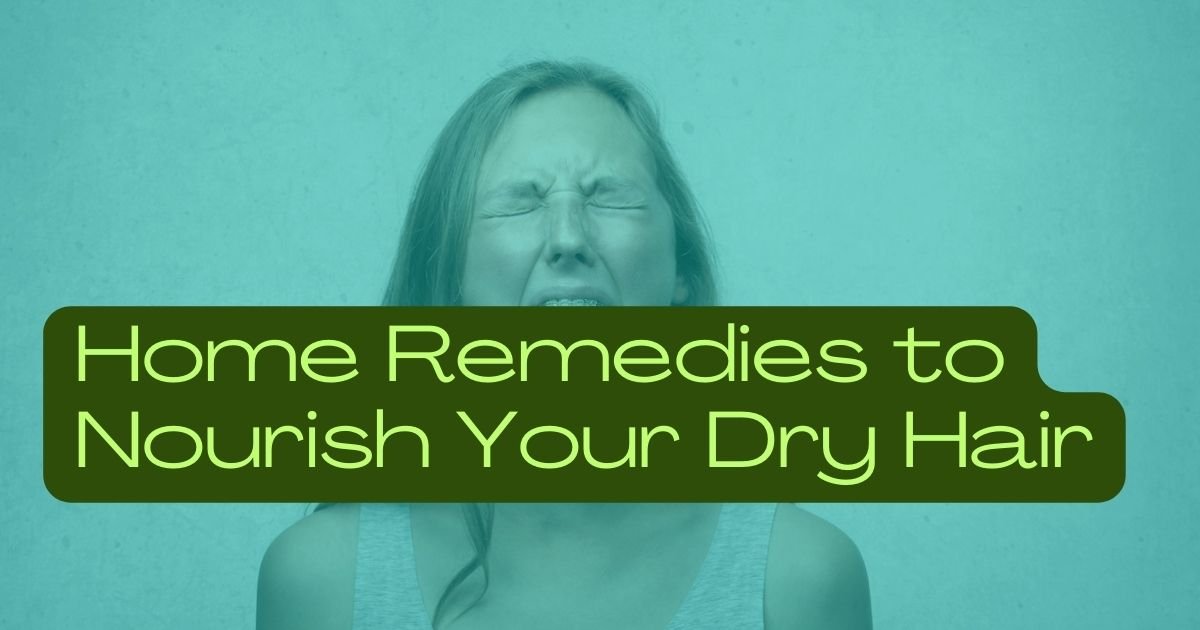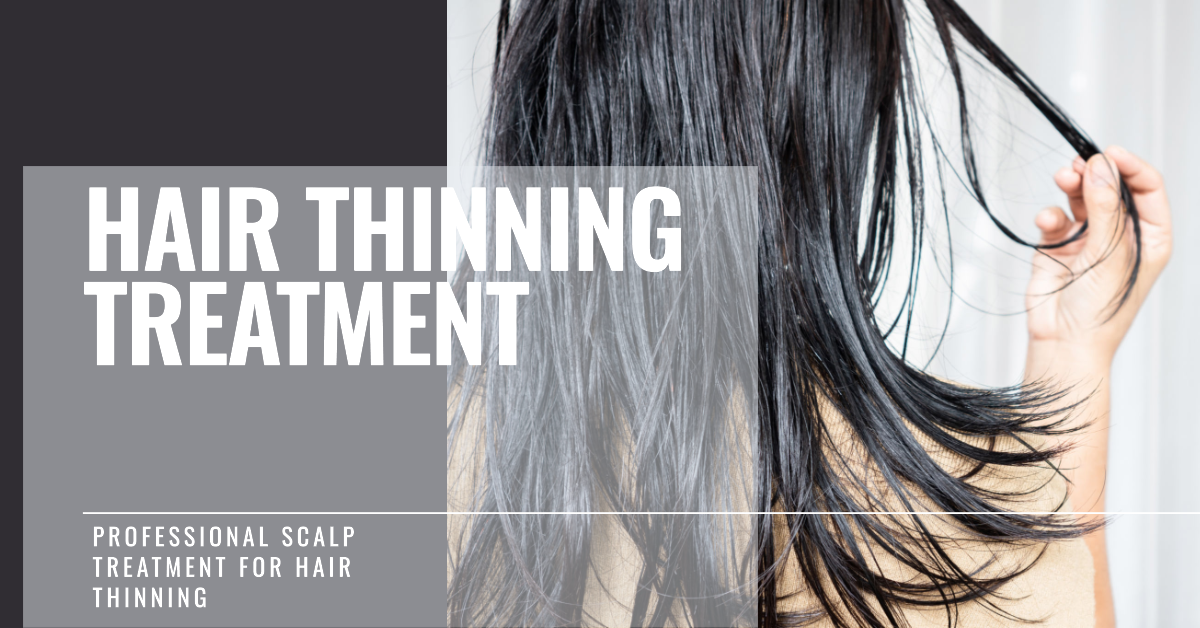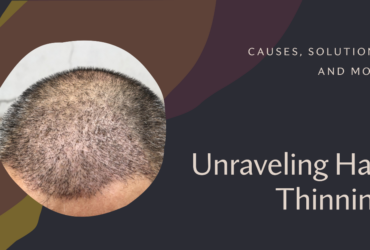Hair thinning can be a distressing experience, causing a loss of self-confidence and self-esteem. However, there are effective ways to address this issue and promote healthy hair growth. In this comprehensive guide, we’ll delve into the topic of how to treat hair thinning, providing you with expert advice, actionable tips, and answers to frequently asked questions. Whether you’re experiencing mild hair thinning or more significant hair loss, this guide will empower you with the knowledge to take control of your hair health.
Table of Contents
Understanding Hair Thinning
Hair thinning is a common issue that can affect both men and women. It occurs when the hair follicles start to shrink over time, resulting in finer and weaker strands of hair. There can be various causes of hair thinning, including genetics, hormonal changes, age, stress, and poor haircare habits. However, the good news is that there are several effective strategies and treatments available to address this concern and promote healthy hair growth.
How to Treat Hair Thinning: Embracing a Healthy Haircare Routine
Taking care of your hair is essential to combat hair thinning. Here are some key steps to incorporate into your daily routine:
Exploring Medical Treatment Options
If you’re dealing with significant hair thinning, it’s a good idea to consult a dermatologist or a hair specialist. They can recommend medical treatments such as:
- Minoxidil: An FDA-approved over-the-counter topical treatment that promotes hair growth.
- Finasteride: A prescription medication that can help prevent further hair loss in men.
- Low-Level Laser Therapy (LLLT): This non-invasive treatment uses red light to stimulate hair follicles.
Trying Natural Remedies
Nature offers various remedies that may help strengthen hair and stimulate growth:
- Aloe Vera: Applying aloe vera gel to your scalp can soothe inflammation and promote a healthy scalp environment.
- Onion Juice: Rich in sulfur, onion juice may improve blood circulation to the hair follicles.
- Essential Oils: Some essential oils, like rosemary and peppermint oil, have shown potential for promoting hair growth.
Considering Lifestyle Changes
Certain lifestyle factors can contribute to hair thinning. Making positive changes can have a significant impact:
- Reduce Stress: Chronic stress can contribute to hair thinning. Engage in stress-reduction techniques like meditation or yoga.
- Balanced Diet: Ensure your diet includes a variety of nutrients essential for hair health, such as vitamins, minerals, and protein.
- Adequate Sleep: Prioritize quality sleep, as it plays a vital role in overall health, including hair growth.
Nourishing Your Scalp
A healthy scalp provides a strong foundation for hair growth:
- Gentle Cleansing: Use a mild shampoo to keep your scalp clean without stripping away natural oils.
- Scalp Massage: Massaging your scalp improves blood circulation, helping to deliver nutrients to hair follicles.
Using Hair Thickening Products
Various haircare products can temporarily improve the appearance of hair thickness:
- Volumizing Shampoos and Conditioners: These products can create the illusion of thicker hair by adding volume and texture.
- Hair Fibers: These are microscopic fibers that adhere to your existing hair, making it appear fuller.
Seeking Professional Advice
If you’re unsure about the best approach to treat your hair thinning, don’t hesitate to seek professional advice. Hair specialists can provide personalized recommendations based on your unique situation and needs.
The Importance of Diet: Nutrients for Hair Health
Your diet plays a crucial role in maintaining healthy hair. Certain nutrients are especially beneficial for promoting hair growth and preventing thinning:
Foods to Incorporate
- Protein: Hair is primarily composed of a protein called keratin. Include sources of lean protein such as chicken, fish, eggs, and legumes.
- Omega-3 Fatty Acids: Found in fatty fish, flaxseeds, and walnuts, these healthy fats support scalp health and hair growth.
- Vitamins: Vitamins like A, C, and E are essential for hair health. Incorporate a variety of fruits and vegetables into your diet.
Hydration and Hair Growth
Drinking an adequate amount of water is essential for overall health, including the health of your hair and scalp. Hydration helps in maintaining the moisture balance of the scalp, promoting a conducive environment for hair growth.
The Psychological Impact: Boosting Self-Confidence
Experiencing hair thinning can have a significant psychological impact, affecting self-confidence and self-image. Here’s how to boost your confidence:
Seeking Emotional Support
Don’t hesitate to share your feelings with friends, family, or a mental health professional. Opening up about your concerns can alleviate stress and anxiety related to hair thinning.
Conclusion
Dealing with hair thinning can be challenging, but with the right knowledge and proactive steps, you can address the issue and promote healthy hair growth. Remember that everyone’s hair journey is unique, so be patient and consistent in your efforts. By adopting a holistic approach that includes a healthy lifestyle, proper haircare, and seeking professional guidance when needed, you can regain your confidence and enjoy the benefits of vibrant, thick hair.
FAQs
-
Can stress cause hair thinning?
Yes, chronic stress can disrupt the hair growth cycle, leading to increased shedding and hair thinning.
-
Are hair thinning and hair loss the same?
While hair thinning refers to a decrease in hair diameter, hair loss typically involves the shedding of hair from the scalp.
-
What role does genetics play in hair thinning?
Genetics can play a significant role in hair thinning. If it runs in your family, you may be more prone to experiencing it.
-
Can I prevent hair thinning?
While you can’t completely prevent hair thinning, adopting a healthy lifestyle, using appropriate haircare products, and managing stress can help minimize its impact.
-
How do I choose the right haircare products?
Look for products with ingredients like biotin, keratin, and vitamins that promote hair health. Consult a hair specialist if you’re unsure.
-
When should I see a doctor?
If you notice sudden or severe hair thinning, it’s advisable to consult a dermatologist or hair specialist for a proper diagnosis and treatment plan.
As you embark on your journey to address hair thinning, remember that you hold the power to restore your hair’s vitality and fullness. With the insights and techniques shared in this guide, you’re equipped to take proactive steps towards a healthier, more voluminous mane. Embrace these strategies with confidence and patience, knowing that your efforts will yield results.
Your hair deserves the best care, and now you have the knowledge to provide just that. To continue exploring a world of haircare wisdom and beauty insights, simply click here. Here’s to reclaiming the strength and beauty of your hair, and to a future filled with vibrant, thicker locks!














Leave a Reply
View Comments